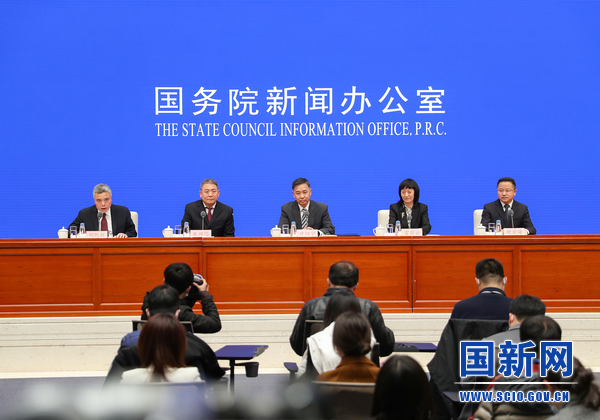GI plays a role in China's poverty alleviation
As an important form of intellectual properties, geographical indication is boosting the quality and sales of local specialties and agricultural products in rural areas in China, playing an important role in targeted poverty alleviation, officials said at an SCIO press briefing in Beijing on Thursday.
By Cui Can
Geographical indication (GI) is a sign used on products that have a specific geographical origin and possess qualities or a reputation embedded to that origin. It not only provides a way for business to leverage the value of their geographically unique products, but also informs and attracts consumers.

As an important form of intellectual properties, GI is boosting the quality and sales of local specialties and agricultural products in rural areas in China, playing an increasingly important role in targeted poverty alleviation, officials from the China National Intellectual Property Administration (CNIPA) said at a press conference held by the State Council Information Office in Beijing on Thursday.
According to Lei Xiaoyun, director of CNIPA's IP Utilization and Promotion Department, among the country's 832 impoverished counties that have been lifted out of poverty, over 60% have GIs.
In terms of increasing the added value of agricultural products and supporting targeted poverty alleviation, GI has played an irreplaceable role, as demonstrated in Sangzhi county of Zhangjiajie city, Hunan province. The county has four national GI trademarks for its agricultural products, including white tea and honey.
Zhao Yunhai, deputy secretary of the CPC Sangzhi County Committee and head of Sangzhi county, said that Sangzhi now has more than 5,267 hectares of tea plantations, and 46 companies in the county are involved in the white tea industry. The total output value of the industry in 2019 reached 228 million yuan (US$34.68 million).
After gaining a GI label, the white tea industry in Sangzhi saw a rapid development, with about 30% of the people registered as living in poverty taking part in the industry. Zhao said that Sangzhi hopes to introduce to the world successful examples of using GI to develop the local agricultural economy, especially in the fields of promoting targeted poverty alleviation through intellectual property.
This September, China and the EU signed an agreement on protecting geographical indications. Many GI products in the agreement come from the impoverished areas in China.
Gan Shaoning, deputy commissioner of the CNIPA, said the signing of this agreement can promote mutually beneficial exchanges between China and the EU, and better facilitate trade cooperation.
"We believe that by enhancing the global awareness of Chinese GI products, especially those from impoverished areas, the GI branding strategy will play a positive role in empowering locals and helping lift them out of poverty."

